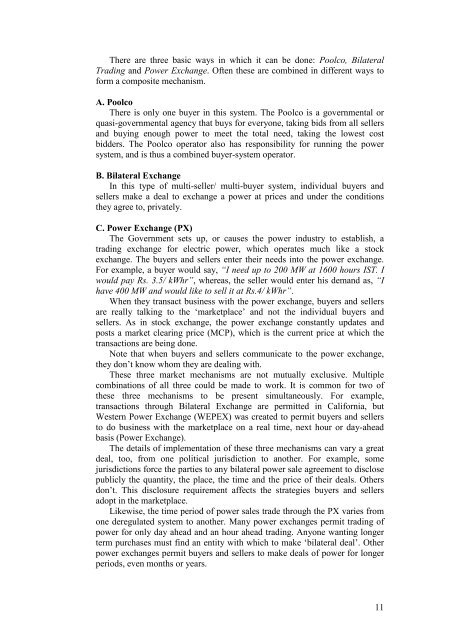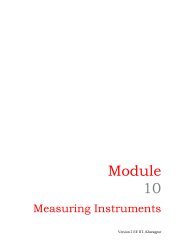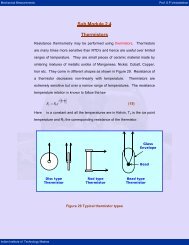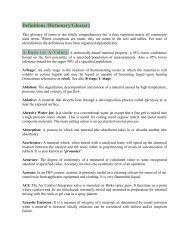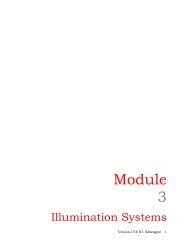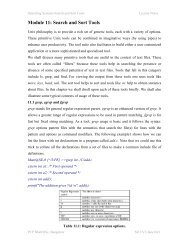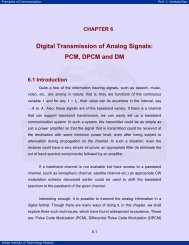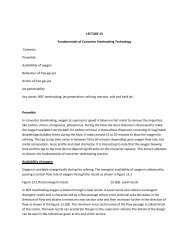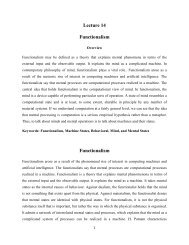Introduction to Deregulation in Power Industry - nptel
Introduction to Deregulation in Power Industry - nptel
Introduction to Deregulation in Power Industry - nptel
You also want an ePaper? Increase the reach of your titles
YUMPU automatically turns print PDFs into web optimized ePapers that Google loves.
There are three basic ways <strong>in</strong> which it can be done: Poolco, Bilateral<br />
Trad<strong>in</strong>g and <strong>Power</strong> Exchange. Often these are comb<strong>in</strong>ed <strong>in</strong> different ways <strong>to</strong><br />
form a composite mechanism.<br />
A. Poolco<br />
There is only one buyer <strong>in</strong> this system. The Poolco is a governmental or<br />
quasi-governmental agency that buys for everyone, tak<strong>in</strong>g bids from all sellers<br />
and buy<strong>in</strong>g enough power <strong>to</strong> meet the <strong>to</strong>tal need, tak<strong>in</strong>g the lowest cost<br />
bidders. The Poolco opera<strong>to</strong>r also has responsibility for runn<strong>in</strong>g the power<br />
system, and is thus a comb<strong>in</strong>ed buyer-system opera<strong>to</strong>r.<br />
B. Bilateral Exchange<br />
In this type of multi-seller/ multi-buyer system, <strong>in</strong>dividual buyers and<br />
sellers make a deal <strong>to</strong> exchange a power at prices and under the conditions<br />
they agree <strong>to</strong>, privately.<br />
C. <strong>Power</strong> Exchange (PX)<br />
The Government sets up, or causes the power <strong>in</strong>dustry <strong>to</strong> establish, a<br />
trad<strong>in</strong>g exchange for electric power, which operates much like a s<strong>to</strong>ck<br />
exchange. The buyers and sellers enter their needs <strong>in</strong><strong>to</strong> the power exchange.<br />
For example, a buyer would say, “I need up <strong>to</strong> 200 MW at 1600 hours IST. I<br />
would pay Rs. 3.5/ kWhr”, whereas, the seller would enter his demand as, “I<br />
have 400 MW and would like <strong>to</strong> sell it at Rs.4/ kWhr”.<br />
When they transact bus<strong>in</strong>ess with the power exchange, buyers and sellers<br />
are really talk<strong>in</strong>g <strong>to</strong> the ‘marketplace’ and not the <strong>in</strong>dividual buyers and<br />
sellers. As <strong>in</strong> s<strong>to</strong>ck exchange, the power exchange constantly updates and<br />
posts a market clear<strong>in</strong>g price (MCP), which is the current price at which the<br />
transactions are be<strong>in</strong>g done.<br />
Note that when buyers and sellers communicate <strong>to</strong> the power exchange,<br />
they don’t know whom they are deal<strong>in</strong>g with.<br />
These three market mechanisms are not mutually exclusive. Multiple<br />
comb<strong>in</strong>ations of all three could be made <strong>to</strong> work. It is common for two of<br />
these three mechanisms <strong>to</strong> be present simultaneously. For example,<br />
transactions through Bilateral Exchange are permitted <strong>in</strong> California, but<br />
Western <strong>Power</strong> Exchange (WEPEX) was created <strong>to</strong> permit buyers and sellers<br />
<strong>to</strong> do bus<strong>in</strong>ess with the marketplace on a real time, next hour or day-ahead<br />
basis (<strong>Power</strong> Exchange).<br />
The details of implementation of these three mechanisms can vary a great<br />
deal, <strong>to</strong>o, from one political jurisdiction <strong>to</strong> another. For example, some<br />
jurisdictions force the parties <strong>to</strong> any bilateral power sale agreement <strong>to</strong> disclose<br />
publicly the quantity, the place, the time and the price of their deals. Others<br />
don’t. This disclosure requirement affects the strategies buyers and sellers<br />
adopt <strong>in</strong> the marketplace.<br />
Likewise, the time period of power sales trade through the PX varies from<br />
one deregulated system <strong>to</strong> another. Many power exchanges permit trad<strong>in</strong>g of<br />
power for only day ahead and an hour ahead trad<strong>in</strong>g. Anyone want<strong>in</strong>g longer<br />
term purchases must f<strong>in</strong>d an entity with which <strong>to</strong> make ‘bilateral deal’. Other<br />
power exchanges permit buyers and sellers <strong>to</strong> make deals of power for longer<br />
periods, even months or years.<br />
11


